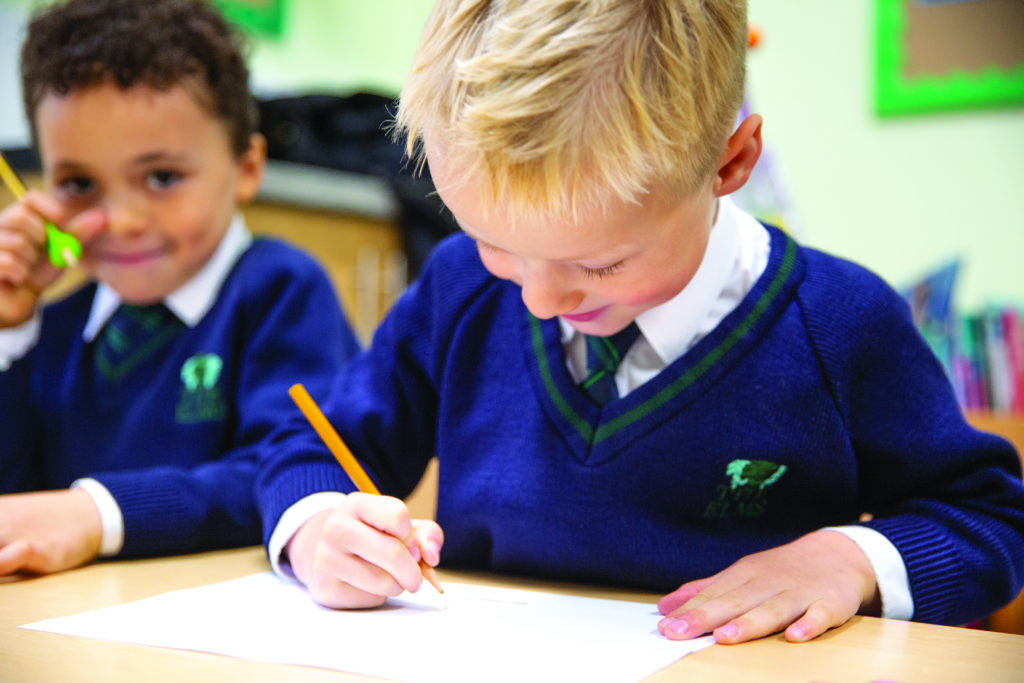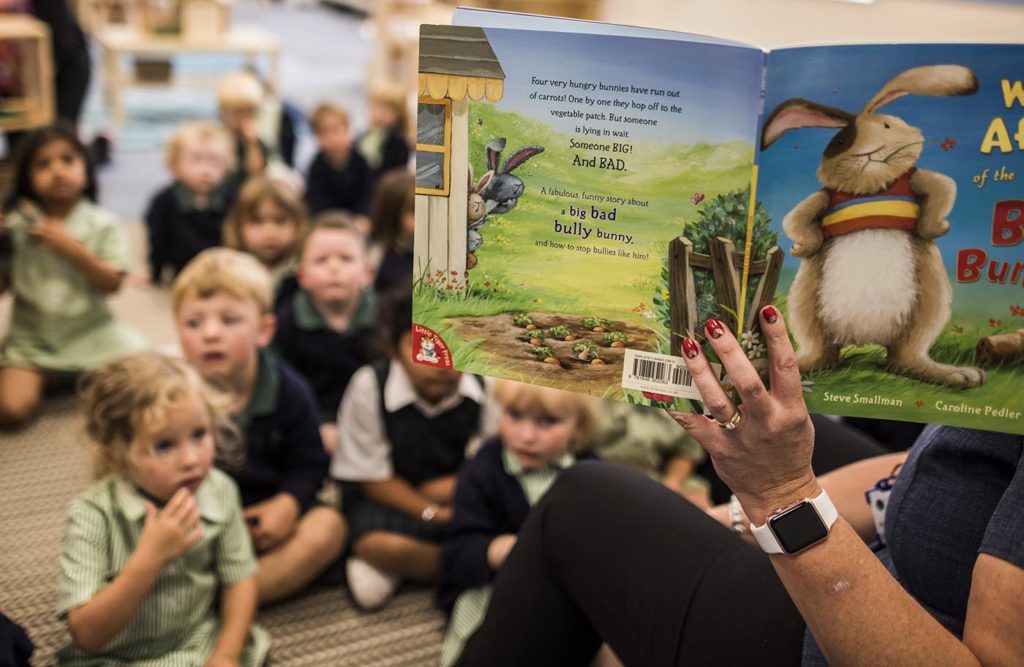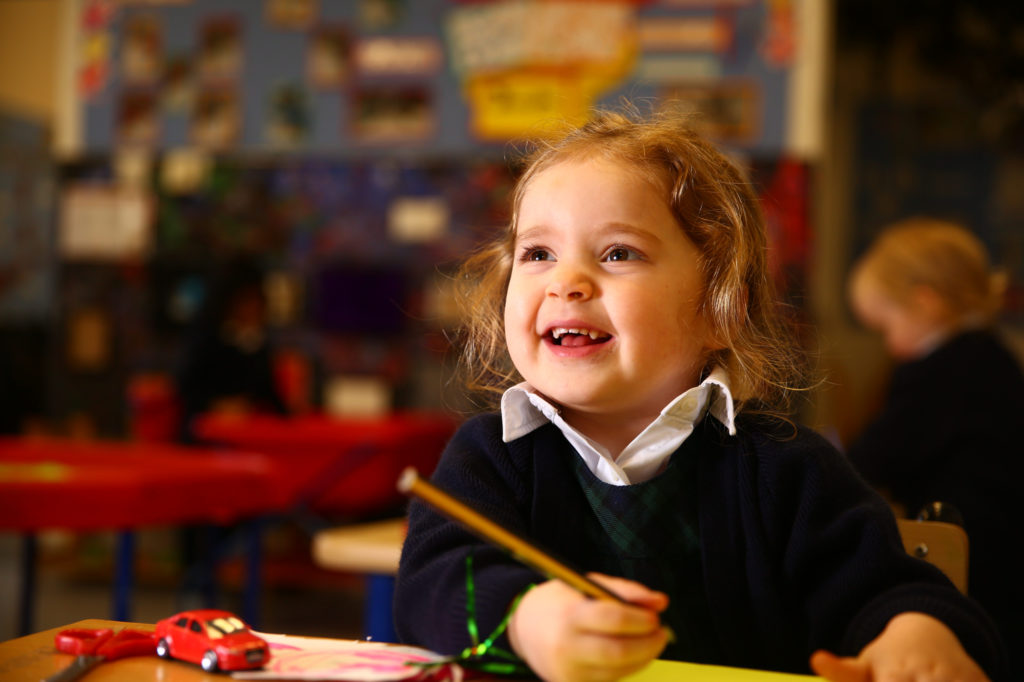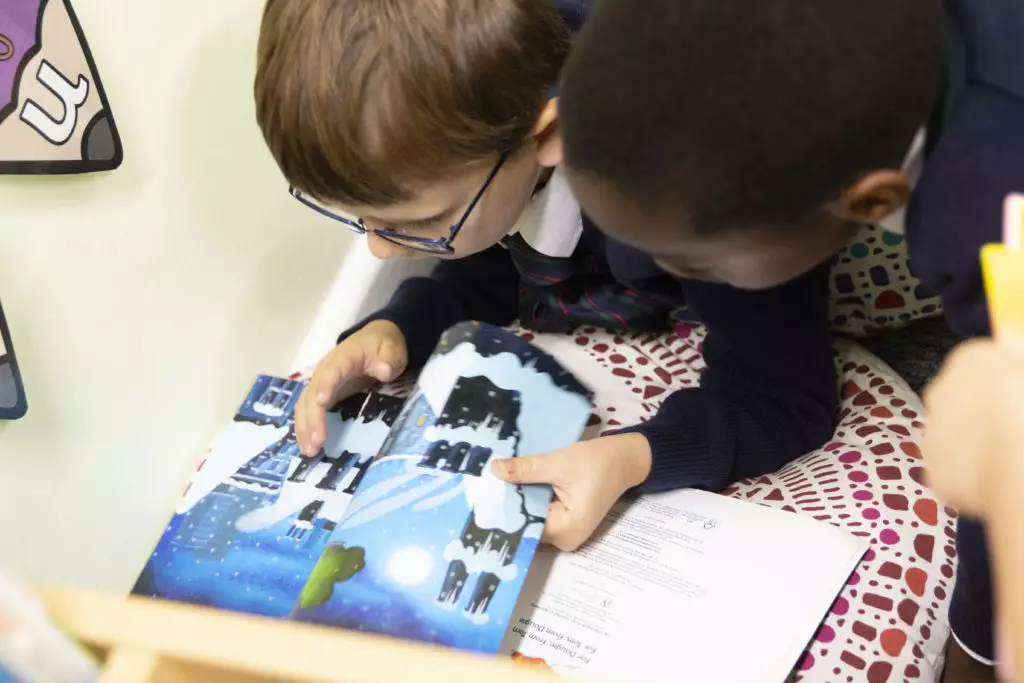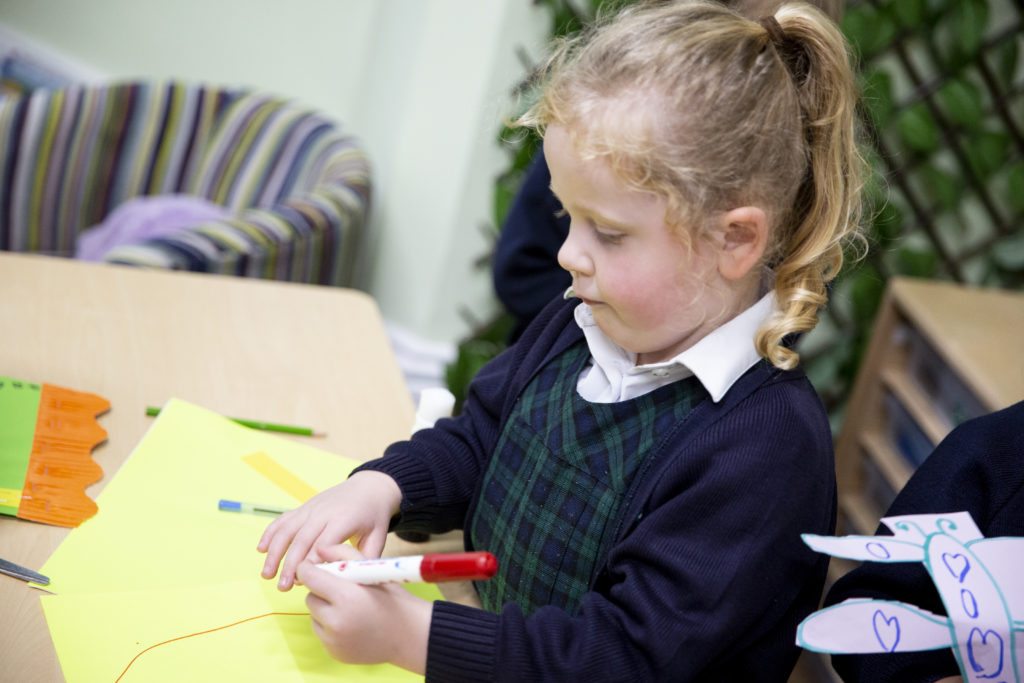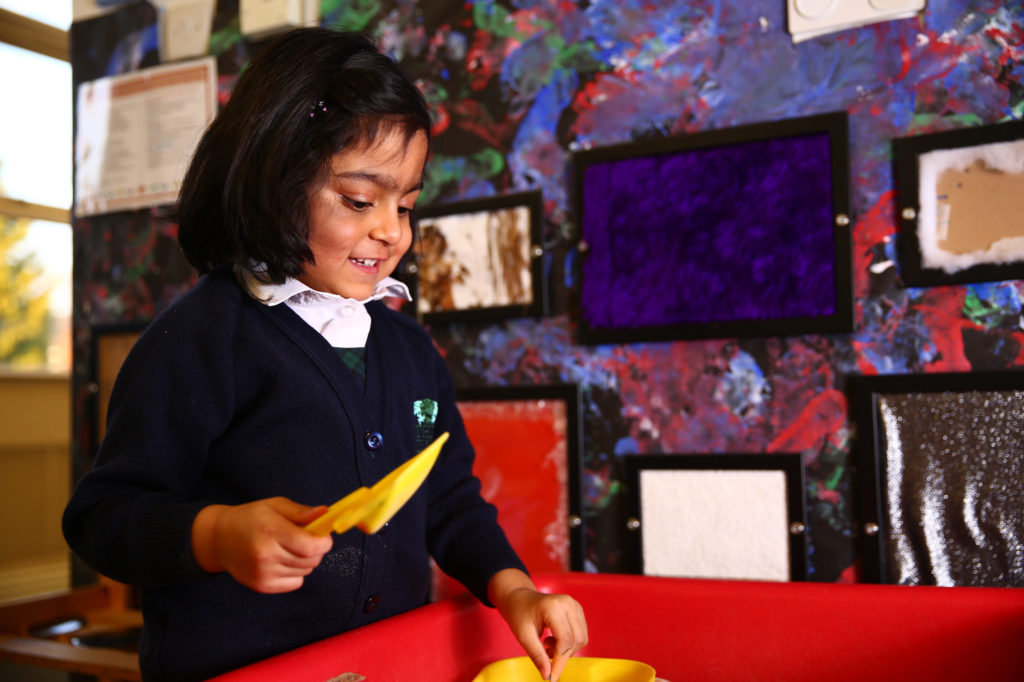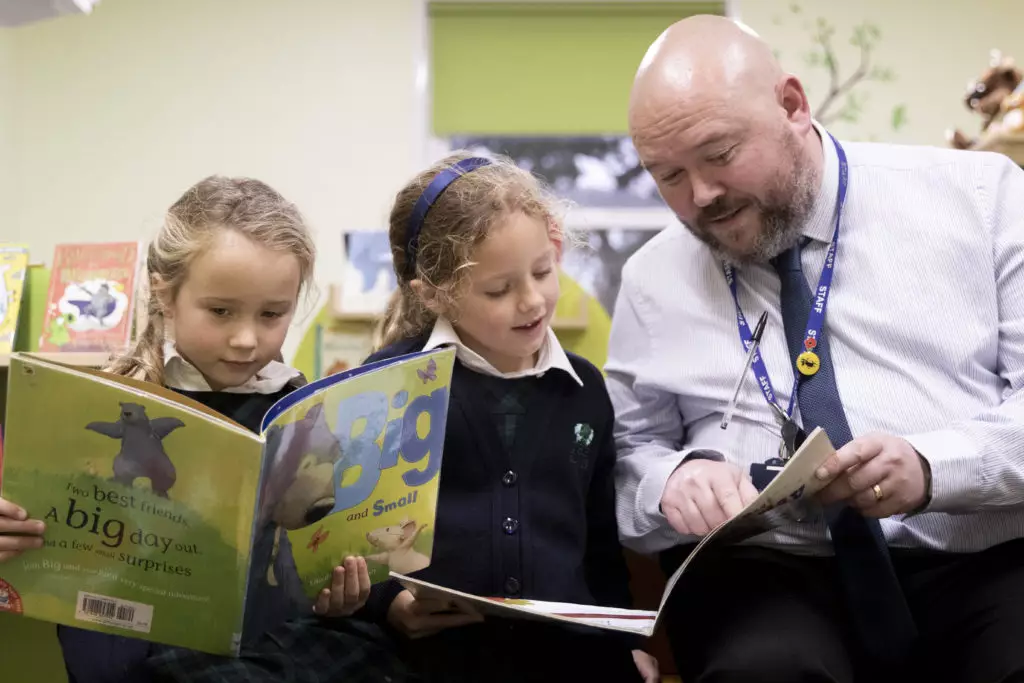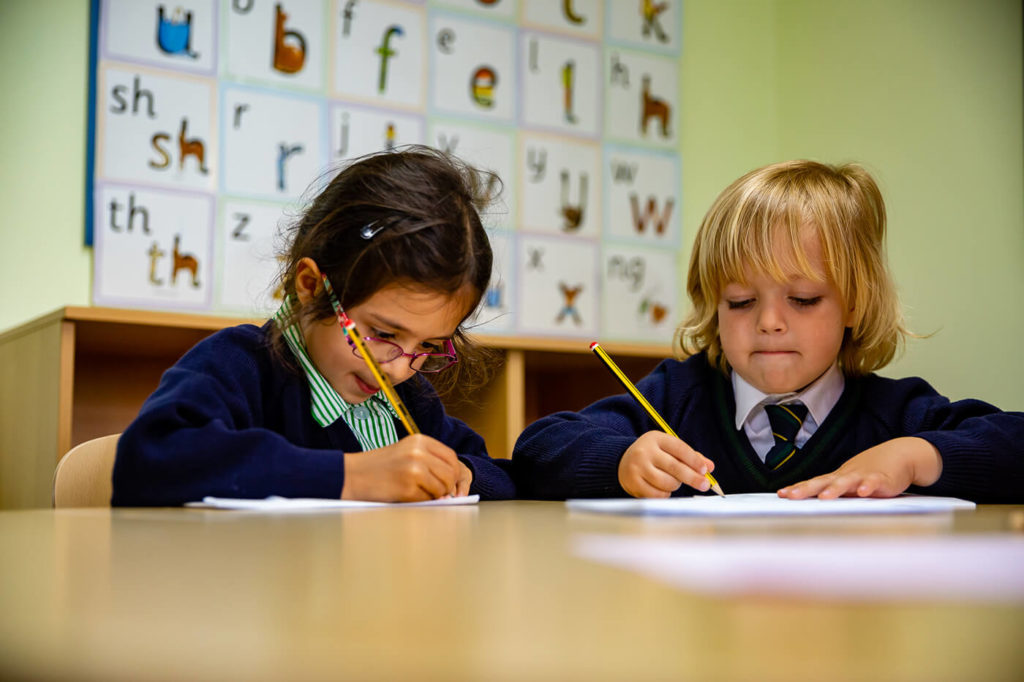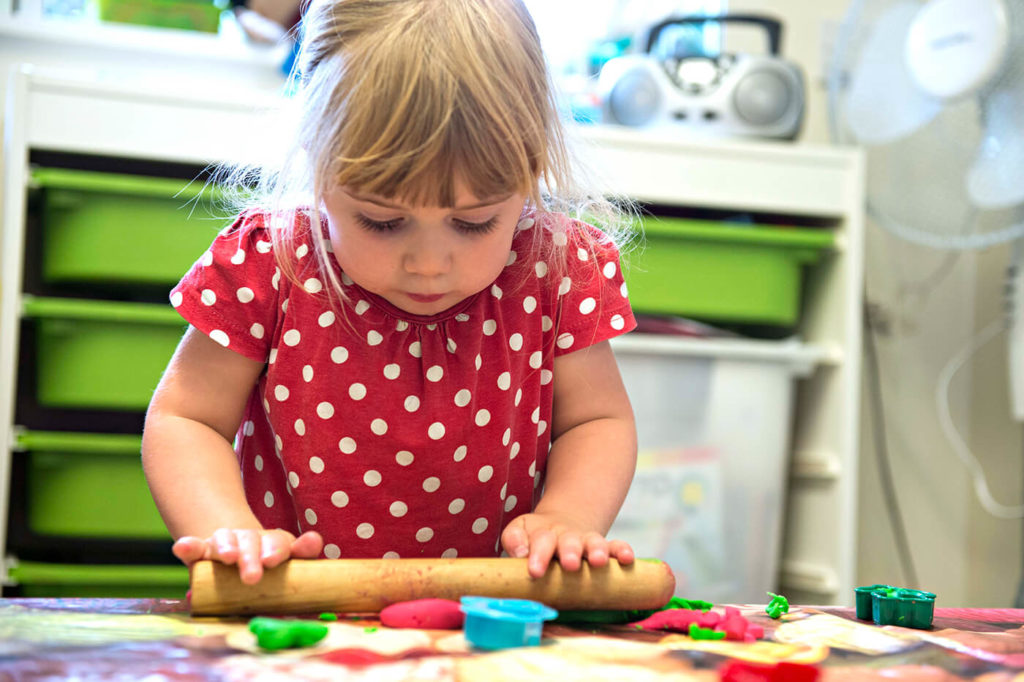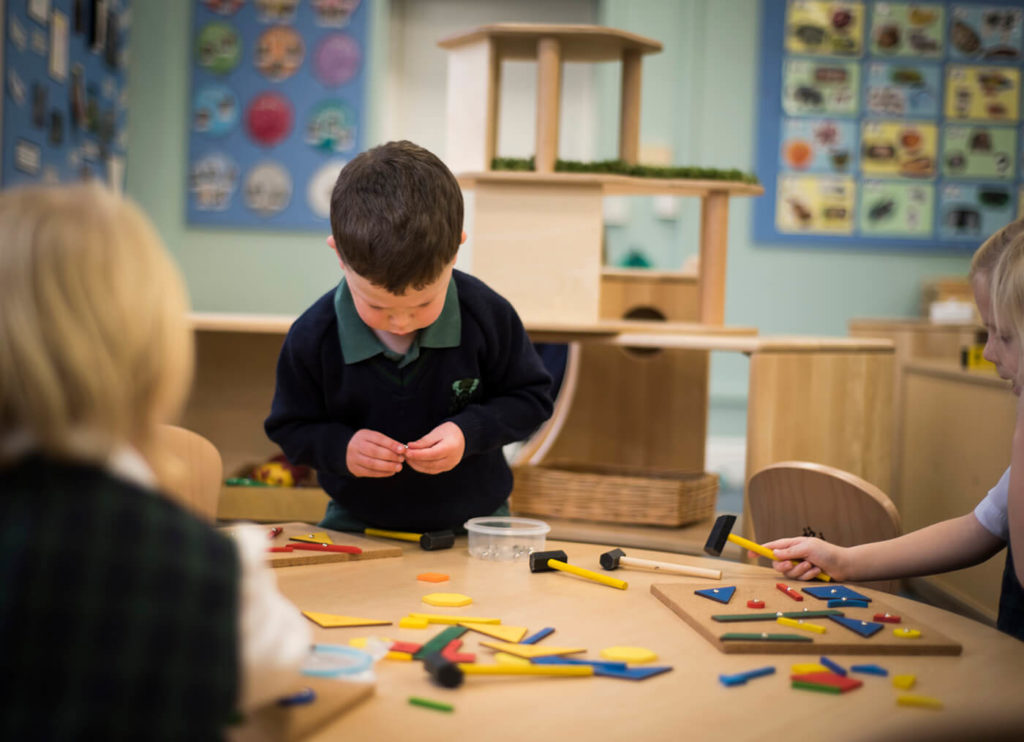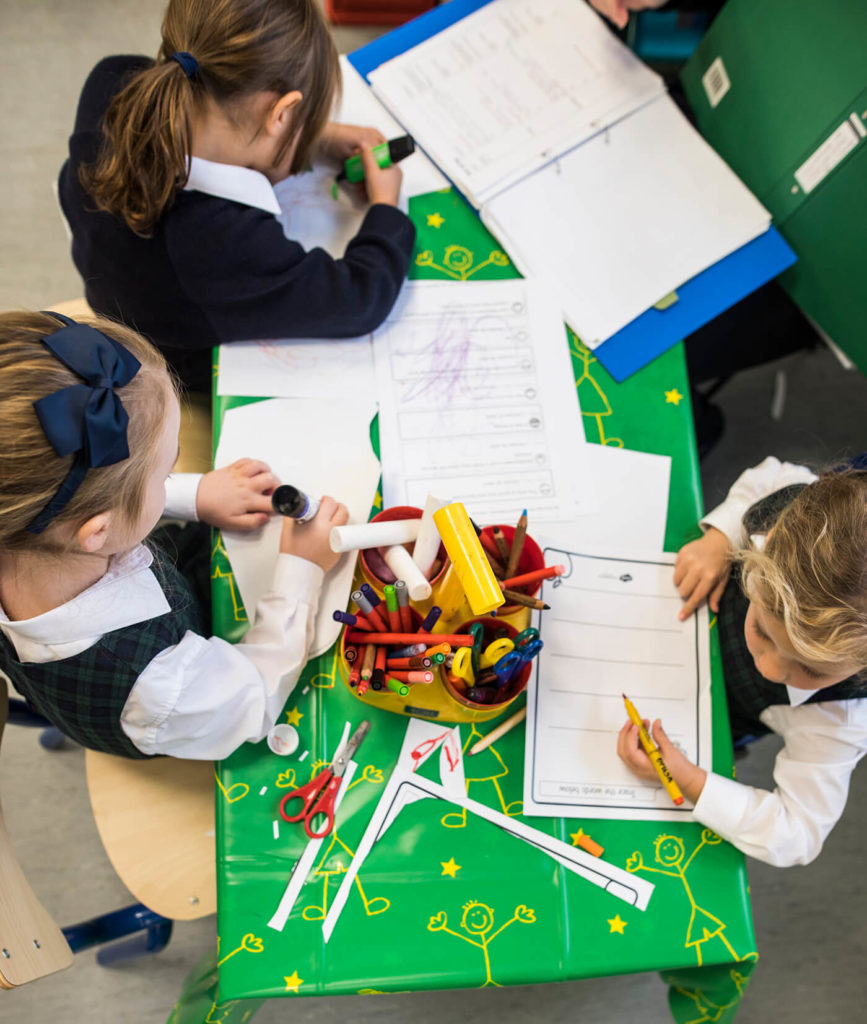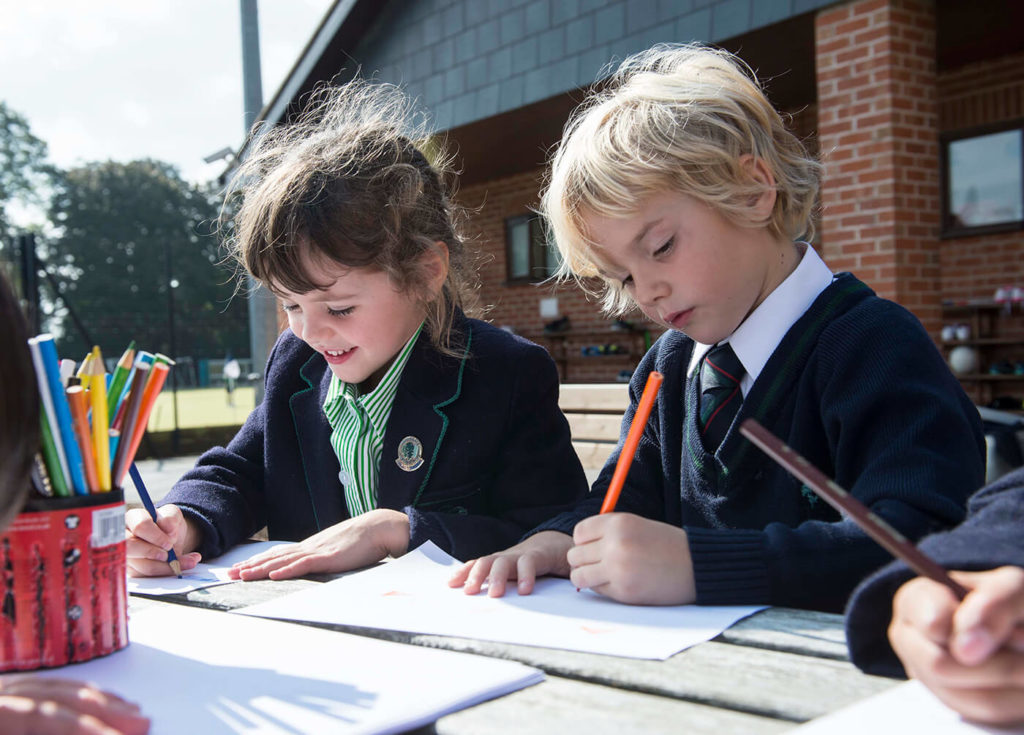We are supporting our youngest learners in Pre-School, Reception and Year 1 with a wide range of activities to continue their Early Years Education as they learn at home. Mrs Savage, Assistant Head (EYFS & Infants), provides insight into how we develop early writing skills and further ideas for you to try at home.
Vocabulary and Reading
The more vocabulary your child has, the better placed they will be to become fluent writers. Look for every opportunity to introduce new words by describing the world around you and your activities. Stories play a crucial role in the development of thinking and writing because they help children internalise the underlying rules and structures.
• read aloud
• share texts of different genres
• choose a range of writing styles
Gross and Fine Motor Control
The development of these skills are essential for the act of writing. Your child’s physical activities will feed into this because when children are active they are developing:
• core strength
• dexterity
• eye-to-hand coordination
Ideas for developing gross motor control:
• digging with spades
• throwing & catching
• pulling & pushing wheeled toys
• using big brushes and large rollers with buckets of water
Ideas for developing fine motor control:
• playing with Lego
• threading & weaving
• play-dough
• cutting & sticking
• icing cakes
Making writing purposeful
To help your child’s level of engagement, have a genuine purpose for your child to write. Some ideas to try during lockdown are encouraging your child to write:
• messages to the family on a kitchen noticeboard
• cards to cheer up neighbours
• a list of things your child will need for a ‘Friday Treat Night’
• a menu for dinner
• instructions for how to grow a sunflower
• questions for a friend, then video call them to get the answers and write them down too!
Link to your child’s interests
Your child’s confidence and self-esteem will be raised if you link a writing task to their interests. Here are some examples to get you started while your child is learning from home:
• Writing a parking fine whilst playing with the cars. Leave out a paper and pencil then see if your child has a go
• Write a fact sheet about a favourite character e.g. 5 facts about Woody
• Encourage your child to write a score sheet when playing their favourite game
• Create ‘Top Trump’ cards for dinosaurs, superheroes or Disney characters.
• Set up a role-play vets with your child’s favourite cuddly toys, can they write a prescription or some signs for the vets?
Create an inviting space to write
Is there somewhere where your child can display their writing? Such as on the fridge or a string line. Seeing their creations can really help boost your child’s confidence.
Provide your child with a range of writing tools:
• Crayons
• Chalk
• felt-tips
• highlighters
• biros
• gel pens
• pencils
Provide different resources for making marks on:
• whiteboards
• easels
• different shaped paper
• wallpaper
• card
• notebooks
• post-it notes
Make it fun!
Above all else, make sure that you have some fun! Encourage your child to write at a time of day when they are happy and not tired. Mix up the activities you do so that writing is exciting and not a chore and praise their efforts. You will soon see improvements and a positive attitude to writing while you teach your child at home.
We have limited Reception places for September 2021, find out more about joining us in Reception or contact our admissions team 0115 8494940
